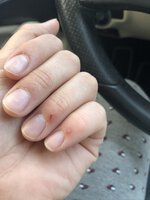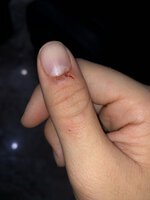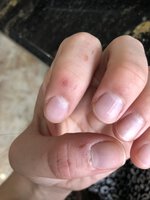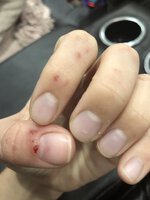Honestly, I don't think "bluffing" is real.
Or more accurately, I think it is mislabeled or misinterpreted by many parrot sources. I suspect that the "bluffing phase" that happens to some adolescent parrots is actually a natural response to inappropriate handling and missed body language cues, not aggression or "just a phase". Baby parrots, like many baby animals are able to adapt to a wide range of potentially frightening situations. They are very open to new experiences and tend to bounce back quickly from rough handling, like being restrained for hand-feeding or moved from place to place. As parrots mature, they become more wary and less accepting of stressful situations. Their individual personality and preferences develop and they will no longer be okay with being forced into a position that makes them feel uncomfortable. They start to exert control over their surroundings and "push back" when they don't feel safe or happy. This can develop into lunging and even biting, if you miss the subtler clues that your parrot uses to communicate his feelings. It might feel like this behavior is coming out of nowhere, but it is likely that he has been trying to tell you for a while and you either didn't notice or learned to ignore his warning signs.
Similar behavior can be seen in dogs - young puppies are very tolerant of new experiences, but when they reach a certain age, they will suddenly start to be much more fearful and cautious when encountering strangers or new sights/sounds. At times, this can lead to fear-based aggression, especially if they have not been socialized adequately at an earlier age or if they have an inexperienced owner who is unable to recognize the early signs and forces the dog into scary situations. The puppy feels like it must protect itself from danger and may develop aggressive tendencies as a defense mechanism.
Here is an article that talks about this idea and provides some training suggestions that focus on positive reinforcement and mutual respect:
Do Animals Bluff?
I think the key point is that "bluffing" is not really a phase that the bird will just "get over" if you ignore it. Rather, it is a sign that your bird is maturing and its husbandry needs have changed. You may need to change how you interact and slow down or back off until you gain a better understanding of your bird's boundaries and personal preferences.
It is very likely that your bird is biting for a reason. The tricky part is figuring out the cause(s) and finding ways to work with your bird so you are both happy and nobody gets hurt!





